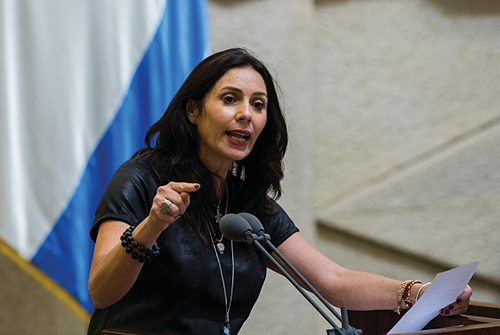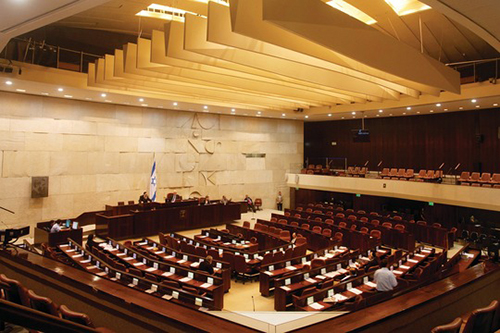A group of Israeli artists, museum directors and art educators quietly filed a lawsuit in July against the country’s ministry of culture, according to a petition seen by The Art Newspaper. Artists and cultural institutions are feeling increasingly intimidated under the government of Benjamin Netanyahu, especially since Miri Regev, an Israeli army brigadier-general, became the country’s minister of culture in 2015. Protests against threats to freedom of speech flared all summer.
Threats to funding based on policies that limit freedom of expression could be a “death blow to culture institutions that rely heavily on public funding”, says one of the petitioners in the lawsuit, who asked not to be named.
The lawsuit demands, based on the freedom of information law, that the culture ministry and the Israeli Council for Culture and Art reveal the ministry’s and council’s criteria for appointments and decision-making.
Meanwhile, the sculptor Dani Karavan, who is based in Tel Aviv and Paris, tells us that his recent call to have his work Pray for the Peace of Jerusalem (1966) covered up or removed from Israel’s parliament was a pro-democracy protest—and a cry in the desert. He says the parliament did not respond. Karavan, whose sculpture is one of the country’s most high-profile public works, says: “Artists express their opinions less because of fear to be in conflict with the government. There are [constantly] new laws putting pressures on freedom of expression and on thinking.”
Dani Kanavan wants his Knesset sculpture, Pray for the Peace of Jerusalem, to be removed or covered as a protest. Photo: Noam Chen/Israeli Ministry of Tourism
The artist and professor Larry Abramson is another vocal critic of the government’s cultural policy. In July, he resigned as head of the multidisciplinary art school at Shenkar College near Tel Aviv, as a gesture to make “my most significant educational contribution to my students and to young artists in general, who, sadly, will be facing ever-growing infringements upon their freedom of expression in years to come”, he tells us.
Abramson’s resignation followed an exhibition in which a student, Yam Amrani, showed a nude painting of a subject that resembled Israel’s right-wing female minister of justice, Ayelet Shaked. The president of the college, Yuli Tamir, demanded that the work be removed. The student covered the face with tape as a compromise, but later removed the work. Tamir, a former education minister and civil rights advocate, told the media that her decision was not censorship and that she had no problem with political works, but that this piece was demeaning to women and invaded the privacy of a public female figure.
“The past year has seen a growing threat to freedom of expression in Israel,” Abramson says. “The greatest threat to democratic society is self-censorship. When artists, curators and directors of art institutions choose to pre-emptively avoid polemic issues, they have given up the struggle in advance, and have sacrificed their dearest values for the comfort and security of governmental budgets.”
Loyalty test for cultural funding?
Israel’s controversial culture minister, Miri Regev, has called artists “tight-asses”, “instigators” and “ungrateful”, while artists have called her “dictator” and “fascist”. Regev introduced a “loyalty test” in a culture bill that could prevent or limit state funding for artists who, among other things, “dishonour” state symbols, treat Israel Independence Day as a day of “mourning” for the experiences of Palestinians who lost homes and family members when Israel was founded, or question Israel as a democratic and Jewish state. Regev also threatened funding cuts to cultural institutions that will not perform in Jewish settlements over the Green Line. She has also demanded a say in musical choices on public radio and in appointments at the not-yet launched public broadcast authority.
Regev supports more funding to poor Jewish neighborhoods, promotes Jewish Middle Eastern culture, and has agreed to somewhat raise the culture budget to the Arab sector. But Ayman Odeh, the head of The Joint List, an alliance of Arab parties in the Knesset, says that “Some 20 percent of the state’s citizens are Arabs but only 3% of the culture budget goes to Arab cultural institutions. Minister Regev made this discrimination worse by imposing conditions and unclear loyalty tests to get funding. She is the anti-culture minister.” Regev did not respond to requests for comment.

